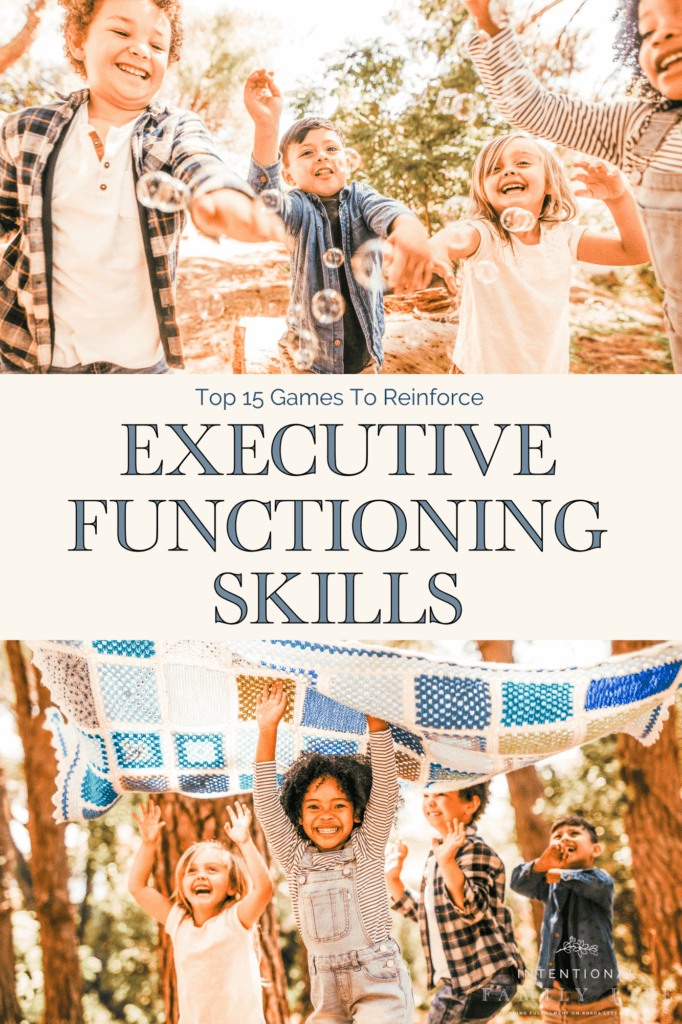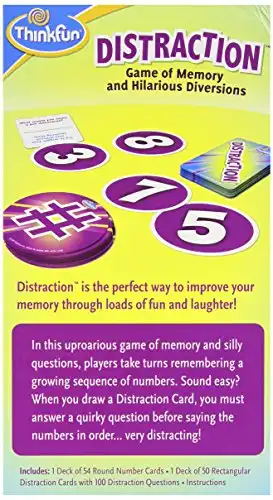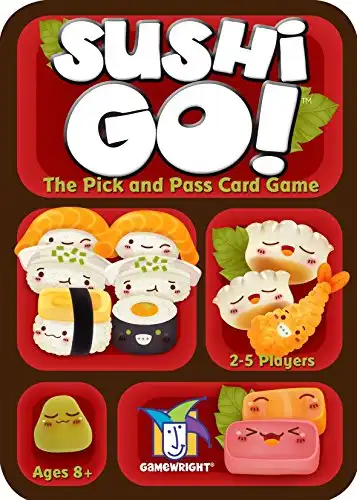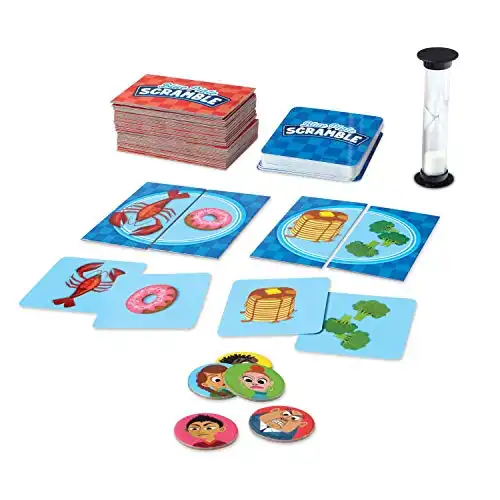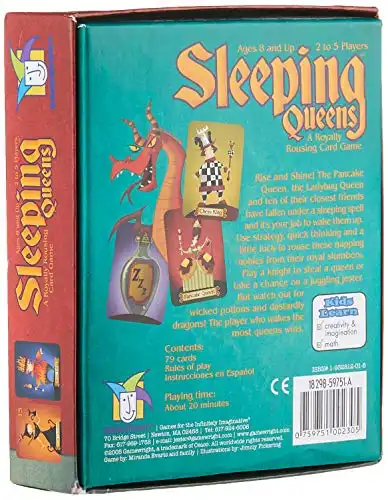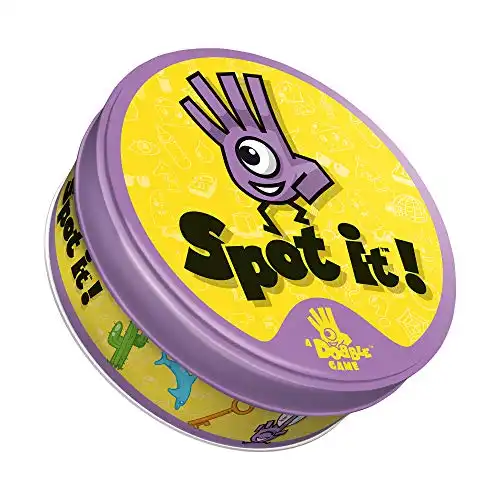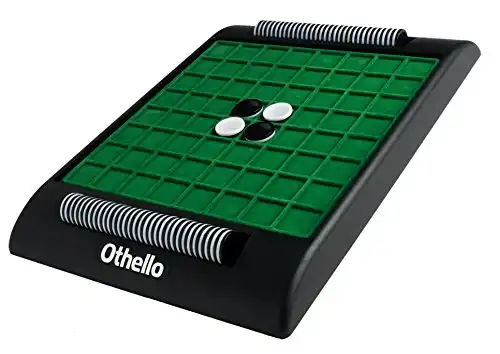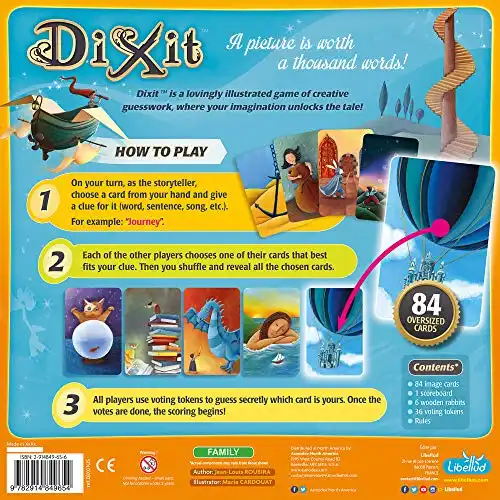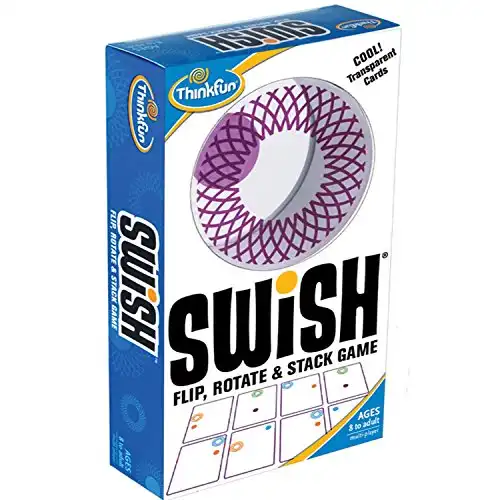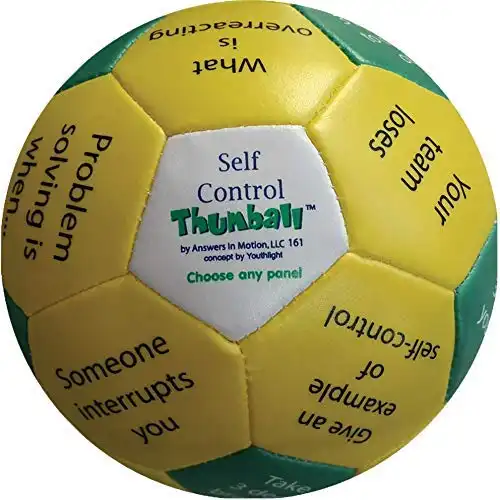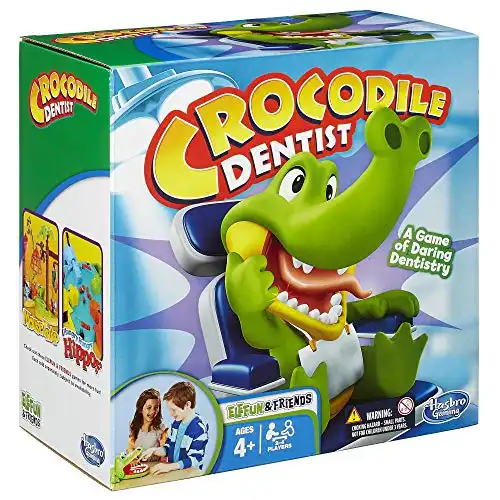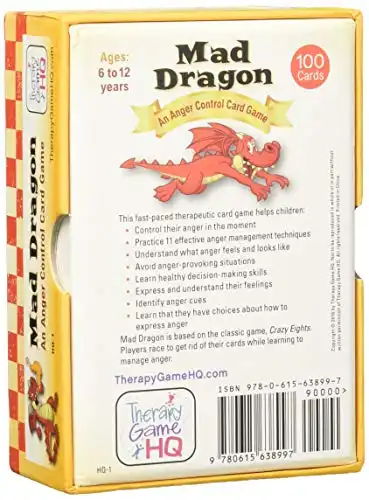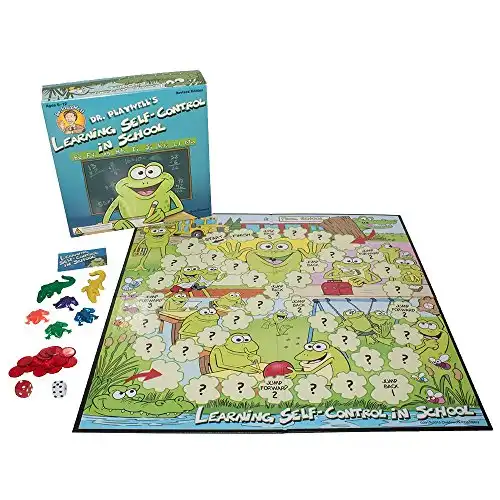Easter Egg: Some kids have a problem with their executive functioning skills such as working memory, emotional regulation, or flexible thinking. But I have great news – we aren’t born with these skills, we learn, nurture, and reinforce them as we grow up!
So – if you have ever noticed that your child has difficulty with time management, shifting attention, problem solving, achieving goals, completing tasks, self-control or regulating emotions, holding information in working memory, trouble switching easily from one activity to another, or other similar challenges you can play one of these fun brain games for kids and start nurturing and strengthening their executive functioning skills today!
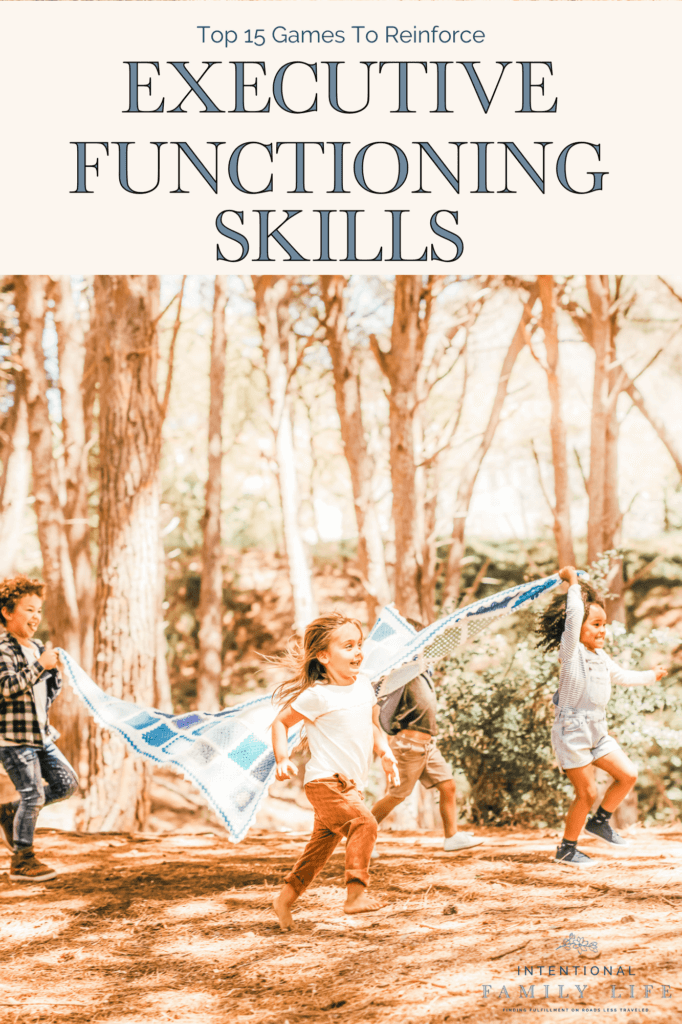
What Are The Areas of Executive Functioning Skills?
What is executive functioning, exactly? Executive functions are often broken down into numerous categories. For our purposes – I’ll simplify down to three overarching categories:
- Working Memory
- Cognitive Flexibility (flexible thinking)
- Inhibatory Control (including self control)
Executive function enables us to pay attention, organize and plan, initiate a task and remain focused on it; regulate emotions; and self regulate. If your child has attentional deficits or a slower processing speed, these would also play an important role in their level of executive function.
If you’ve ever wondered if your child struggles with executive functioning skills – I have good news for you. Kids aren’t born with executive functioning abilities. These are skills that are learned, developed, and nurtured.
What Is Working Memory?
Working memory is the information you can consciously hold in your mind in any given moment. It is one aspect of executive function, a collection of the brain’s cognitive processes. The two other core executive functions are flexibility and self-control/self-regulation.
Having a strong working memory means you have the ability to retain fresh information long enough to do something with it. However, our working memory is limited by nature. This is why we find it so difficult to remember lengthy sentences and numbers with lots of digits, like phone numbers.
People with strong working memories find it easier to recall and manipulate information they hear without needing to write it down. For example, they can solve a math problem in their heads, remember driving directions they read several minutes earlier, and recall the names of each person in a group they’ve just met. (working memory)
Games To Nurture Working Memory
Strengthen your memory with this laugh-out loud card game. Players take turns drawing number cards and remembering a growing sequence of digits. Draw a Thinkfun Distraction Card Game card and you must answer a quirky question before reciting the numbers in order. Get caught repeating the sequence incorrectly and collect the cards – the first player to run out of cards wins. Distraction is the perfect way for anyone young or old to improve memory through loads of laughter and fun.
Sushi Go! - The Pick and Pass Card Game In this fast-playing card game, the goal is to grab the best combination of sushi dishes as they whiz by. Score points for making the most maki rolls or for collecting a full set of sashimi. Dip your favorite nigiri in wasabi to triple its value. Gather the most points and consider yourself the sushi master!
It should be easy to name 3 breeds of dogs—but can you do it under the pressure of PlayMonster 5 Second Rule Game - New Edition , Reds twisting down, and with the other players staring at you, waiting for you to get flustered? Time is not on your side in this game, so just say what comes to mind. It’s all in good fun with this fast-paced game where you have to just spit it out!
There are all kinds of crazy combinations of foods at Peaceable Kingdom : Co-Operative Game : Blue Plate Scramble. Players have 30 seconds to remember which foods go with which plates. Work together to serve your customers through breakfast, lunch and dinner without angry customers and everyone wins! Game includes 36 plate tiles, 36 food cards, 1 score board, 5 customer tokens, 1 30-second timer and instructions for game play.
The Pancake Queen, the Ladybug Queen and 10 of their closest friends have fallen under a sleeping spell. It is the players’ job to wake them up using strategy, quick thinking and a little luck. The player who wakes the most Sleeping Queens Card Game, 79 Cards wins.
There are many games that require use of working memory. Some of the sweetest and most fun are for preschoolers. You can check them out here.
What is Cognitive Flexibility?
Cognitive flexibility includes two skills: flexible thinking and set shifting. Kids who are able to think about a problem in a new way engage in flexible thinking, while kids who get stuck in their ways tend to engage in rigid thinking. Set shifting refers to the child’s ability to let go of an old way of doing something to try a new way.
When kids engage in flexible thinking, they are better able to cope with change and new information, both within the classroom and out in the world. Kids with weak flexible thinking skills (kids who are more rigid in their thinking) struggle to take on new tasks and have difficulty solving problems. (flexible thinking)
Games to Nurture Flexible Thinking
Children who love word games, logic puzzles, secret codes, mazes, and math mysteries will stretch their mental muscles with Think Fun Logic Game. This set of 100 cards, each of which includes a humorous, full-color drawing, promises “the world’s best brainteaser questions.” The characters in the questions often have funny names (Professor Pith Bugby pops up often) or faces or dilemmas to solve. Many of the puzzles involve math concepts, spatial reasoning, logic, or sequential thinking. On the other hand, some can be solved with plain common sense. Visual Brain Storms is a humorous, painless way to improve those higher-order executive functioning skills.
Test your observational skills and hone your reflexes with the gameplay of Spot It! Classic Card Game | Game for Kids | Age 6+ | 2 to 8 Players | Average Playtime 15 Minutes | Made by Zygomatic | Color/Packaging May Vary, a game of lightning-fast choices for a group of two to eight players.
Othello, Strategy Classic Family Board Game 2-Player Reversi Brain Teaser STEM Math Skills, for Adults and Kids Ages 7 and up has players trapping and capturing your opponent’s pieces by placing your disks on the board. Every time you sandwich one or more of your opponent’s pieces you flip those disks to your color. But the lead can change with one flip of a disk in this classic, fast-paced strategy game that’s often not decided until the very last move.
Every picture tells a story – but what story will your picture tell? Asmodee Dixit, Multi-colored is the lovingly illustrated game of creative guesswork, where your imagination unlocks the tale. In this award-winning board game, players will use the beautiful imagery on their cards to bluff their opponents and guess which image matches the story.
Guessing right is only half the battle – to really succeed, you’ll have to get your friends to decide that your card tells the story! Every turn, the storyteller will call out a short phrase or word to match the image on his card. Then each player will choose the card that most closely matches that phrase, and then everyone must guess which card the storyteller saw when he invented his brief tale.
Think Fun Swish - A Fun Transparent Card Game and Toy of the Year Nominee For Age 8 and Upis a thinking game designed to accommodate a variety of skill levels so that adults and kids can play together. To play, players examine 16 cards laid out on a table and try to create more matches than their competitors to win. Create your matches by stacking two or more cards on top of one another so that a colored hoop matches up with the same color ball on a different card. When you make a match, you keep the cards. The player who claims the most cards wins.
Building a child’s imagination requires that they think of alternate story endings or alternate ways of performing a task. Games that promote imagination also, therefore, frequently require flexible thinking. You can check them out here.
What Is Emotional Self-Regulation?
Self-regulation is the ability to manage your emotions and behavior in accordance with the demands of the situation. It includes being able to resist highly emotional reactions to upsetting stimuli, to calm yourself down when you get upset, to adjust to a change in expectations and to handle frustration without an outburst.
It is a set of skills that enables children, as they mature, to direct their own behavior towards a goal, despite the unpredictability of the world and our own feelings. (emotional regulation / self-control)
Games to Nurture Self-Regulation Skills
The features Dr. Warren’s four EF card Games: In or Out, No Match Penguins, Focus and Memory Master. All these games are fun and engaging for everyone, but they can also serve as cognitive remedial tools that exercise executive functioning skills: working memory, management of distractions, attention to detail, stamina, response inhibition, as well as sustaining attention and mental shifting.
Dr. Warren, the author, is an educational therapist that works one-on-one with students. This is one of her many prized, learning products. The research suggests we are not born with executive functioning skills. However, we have the potential to develop these skills. Just like going to the gym can strengthen the body, these card games exercise executive functioning skills.
Youthlight Self-Control Thumball is a soft stuffed ball to throw, roll, or pass in a circle or randomly. Catch it! Look under your thumb. Respond to the prompt. Kids absolutely love this interactive tool that will get them talking and sharing. Without even knowing it, you will be encouraging the use of interpersonal skills including taking turns, eye contact, listening, responding, valuing similarities and respecting individual differences. Encourage players to discuss self-control and how to use it in social and emotional situations. Topics include recognizing big deals, understanding unhealthy thoughts, avoiding overreacting, calming yourself, and more.
Get ready to have loads of fun playing this Elefun and Friends Hasbro Crocodile Dentist Kids Game Ages 4 And Up (Amazon Exclusive) kids game. Gather friends and family for fun and frenzy as players pretend they’re the crocodile “doctor” and check the teeth in the croc’s mouth. He’ll let you know if someone pressed his sore tooth by playfully chomping down.
This fast-paced therapeutic card game helps children control their anger in the moment. They also practice 12 effective anger management techniques and begin to understand what anger feels and looks like.
Third, children learn to avoid anger-provoking situations by identifying anger cues. Fourth, children learn to express and understand their feelings as well as learning that they have choices about how to express anger. Mad Dragon: an Anger Control Card Game plays like the popular game UNO. Players race to get rid of their cards while learning anger control skills.
Childswork / Childsplay Learning Self-Control in School is designed to help students think about the consequences of their behavior and distinguish good choices from bad ones.
The game will also help children practice relaxation and self-control behaviors, therefore learning that they can control their bodies as well as their behavior. Using their Frog markers, players have to avoid the Alligators (representing distractions) that have wandered into the school while answering question about self-control.
If your child’s frustration tolerance is low, they may struggle (or meltdown) if they lose. In this case, try starting with one or more of these cooperative board games where everyone works together. You can check them out here.
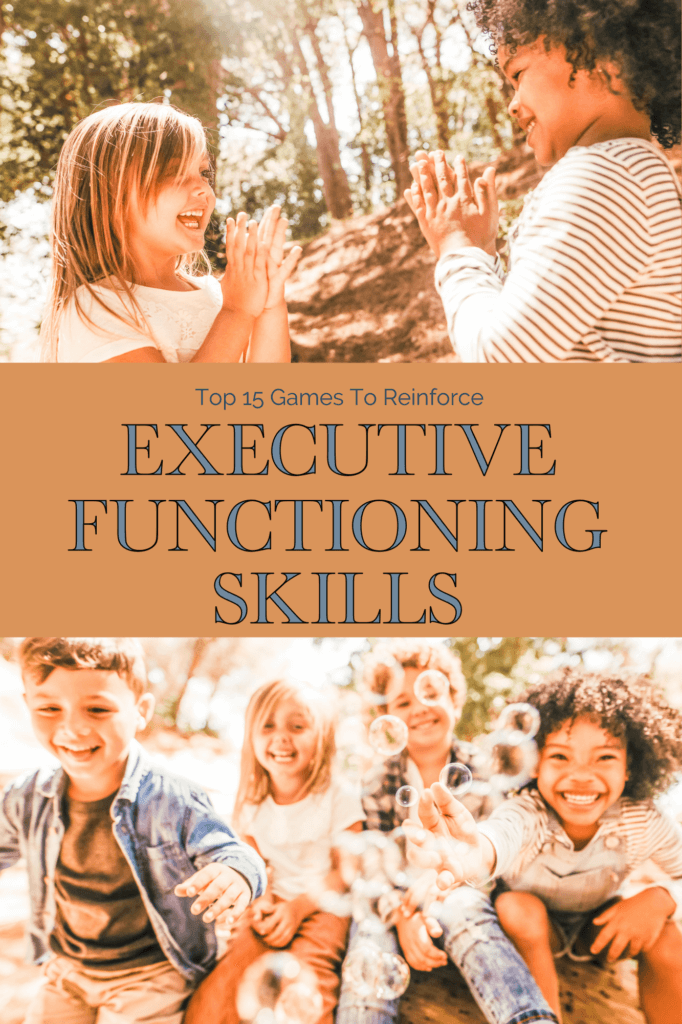
Any one of these games would be a lot of fun for family game night. Your kids won’t even know that you are practicing these executive functioning skills!
Learn How To Plan The Most Amazing Game Night here!
You can also check out these other fun posts about games the family will love!
Fascinating Board Games for Boys and Girls Who Are Creative
Forget Battleship: Here Are 15 Super Cool Games for Boys That You’ve Probably Never Heard Of
Want help getting your kids to listen? Try this:
Kids Won’t Listen? Try This One Amazing Tip To Improve Their Listening Skills
More Resources for Learning About Executive Functioning Skills
Activities to Help With Executive Functioning – By Age
How To Boost Executive Function In Kids and Why It’s Important To Helping Them Thrive
10 Frightfully Useful Tips From Executive Function Coaches
Executive Functioning Issues: Strategies You Can Try At Home
The OT Toolbox has a free 5-day email course, Understanding Executive Functioning Skills
Good Sensory Learning has printable activities and games to help with different aspect of executive functioning skills
Facebook Pages for Support and Up to Date Information About Executive Functioning Skills:
Integrated Learning Strategies
Don’t Forget to Pin This Post So You Can Share and Come Back!
